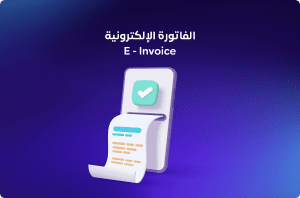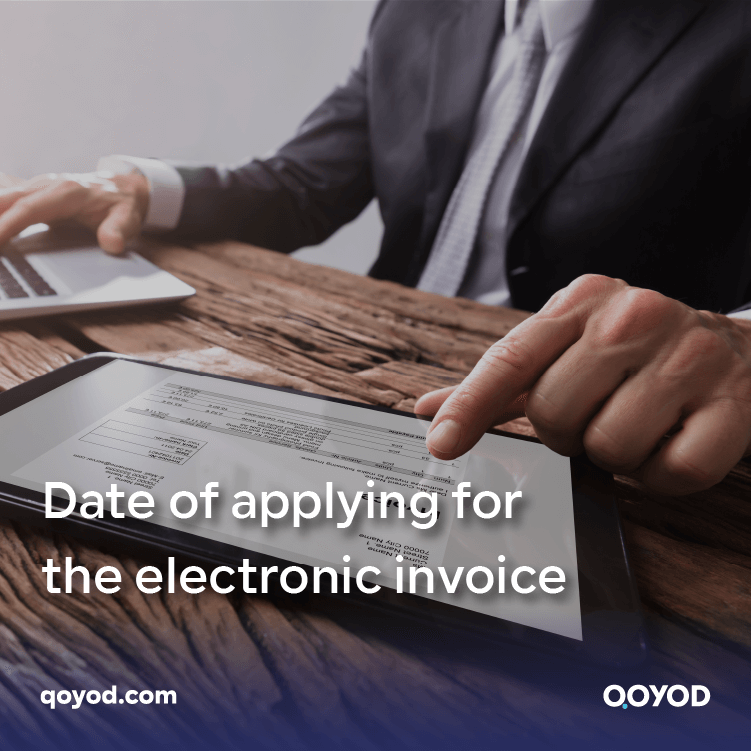When it comes to technology and innovation, the Kingdom of Saudi Arabia has always advanced progress and development by becoming an advanced electronic system that makes invoicing processes smooth and effective. It should be noted that the application of the electronic invoice in the Kingdom has a significant impact on the Saudi economy, contributing to enhancing transparency and combating manipulation and commercial fraud.
Companies also benefit from reduced administrative burden, improved profit and expense management, etc. In general, this invoice contributes to creating a healthy and competitive business environment, so everyone is waiting for the date of the electronic invoice to be implemented in the Kingdom of Saudi Arabia so that they can benefit from technology to enhance the economy, achieve sustainable development, and improve efficiency.
The date of applying for the electronic invoice
Clarify the date of application of the electronic invoice in the Kingdom of Saudi Arabia in two stages:
First stage
Starting on December 4, 2021, this phase included all persons subject to the electronic invoicing regulation and those acting on behalf of the person in charge of issuing the invoice, and it is worth noting that it focused on issuing and keeping electronic invoices.
Second stage
The date of applying the electronic invoice for the second phase started on January 1, 2023 AD, in a phased manner. This stage is known as the linking and integration phase and requires linking the taxpayer’s electronic invoicing systems with the system of the Zakat, Tax, and Customs Authority (Fatora platform), and it is worth noting that electronic invoices must be issued in the required format.
Stages of creating an electronic invoice
The electronic invoice system has been implemented in the Kingdom of Saudi Arabia with the aim of improving and facilitating invoicing processes for companies and individuals, and it is worth noting that this process includes several steps. Below, we will shed light on these main steps, which can be summarized as follows:
Obtaining the mandatory security certificate
This step aims to ensure the security and integrity of the information circulating in the electronic system, as companies and individuals who wish to issue electronic invoices must obtain the mandatory security certificate from an accredited authority, and it is worth noting that this requires the submission of documents and information proving the validity and credibility of the issuer of the invoice.
Registration in the e-invoice system
After obtaining the security certificate, companies and individuals must register in the electronic invoice system approved by the General Authority of Zakat and Tax in the Kingdom of Saudi Arabia, as registration requires providing the necessary information and documents, such as company or individual information in addition to contact information and financial accounts.
Creation of a user account on the electronic invoicing platform
Once the date for the application of the electronic invoice is known and recorded, companies and individuals are able to establish a user account on the electronic invoice platform, which is used to manage electronic invoices, issue them, and send them to customers and suppliers.
Establishment of an invoice form that conforms to the criteria
Companies and individuals must establish an electronic invoice form that conforms to the criteria established by the Public Authority for Zakat and Income. The form contains important information, including company name or individual, tax number, date of issuance, as well as details of goods or services provided with the associated financial amounts.
Use of electronic invoicing forms for clients and suppliers
Once the electronic form has been created, companies and individuals can follow the next steps of electronic invoicing, as the electronic form can be used to automatically input customer and supplier invoice data and generate the electronic invoice.
Guarantee all necessary information in the invoice, such as prices, quantities, and taxes applied.
Note
After knowing the date of application and issuance of the electronic invoice, it can be sent electronically to customers and suppliers via e-mail, SMS system, or any other available methods, and the company must keep an electronic copy of the invoice and record it in its accounting records.
Requirements for issuing electronic invoicing for service providers
When issuing an electronic invoice to service providers, there are a set of requirements that must be met to ensure the validity and comprehensiveness of the invoice, and below we review some of these requirements:
Estimated completion time of the service or product
The expected time for completion of the service or delivery of the product in electronic invoices should be explained, as this can be determined by a time unit, such as days, weeks, or specified dates.
Determine the price of a service or product.
After you know when the electronic invoice will be applied, you must determine the price of the service or product provided in it, and the price can be clarified in the approved local currency and specify the method of payment, such as cash, bank transfer, or even credit card.
Duration of payment
The amount of payment available in the electronic invoice must be explained, and the due date for payment and any special conditions for payment, such as the time limit for payment and the financial returns on late payment, may be determined.
Clarification of all expenses
All expenses related to the service or product must be indicated in the invoice, and this can be done by detailing additional expenses, such as taxes, fees, or any other additional costs.
Specify contact information.
The contact information of the service provider must be included in the electronic invoice, and it is worth noting that this includes: company or individual name, address, phone numbers, email address, and any other information that helps customers communicate easily.
E-Invoice Signature
Although an electronic invoice does not need a manual signature, an electronic signature can be included in it as proof of the authenticity and reliability of the invoice and its source.
How to choose the best accounting software for creating an electronic invoice
When searching for the best accounting software for creating an electronic invoice, there are several characteristics that can distinguish between them. Here is an overview of those characteristics that must be available:
Compliance with data security regulations
The provider must be committed to data security standards, follow strong security practices, protect sensitive customer data, and ensure the confidentiality and integrity of information.
Keep up with the updates from the Zakat, Tax, and Customs Authority.
The provider must be aware of the latest laws and directives of the Zakat, Tax, and Customs Authority, and everything related to the date of application of the electronic invoice, and be able to update and adapt its system according to the new requirements.
Tax return compliance
The provider must be compliant with local tax regulations and legislation and know when the electronic invoice will be applied for each stage, in addition to issuing invoices based on tax requirements and generating the necessary reports for the tax return.
Ease of use and instant technical support
The system should be easy to use so that its users can create and manage invoices easily and conveniently, and there must also be immediate and effective technical support for users to solve any problems or inquiries that may arise.
Multiple payment options
The provider must provide various payment options to customers, including electronic payment, bank transfer, checks, etc.And others, and do not forget that the system must be integrated with the famous payment gateways to facilitate the payment process.
Ability to customize the invoice
The provider must allow the possibility of customizing invoices according to the needs of the company, and users should be able to modify the design, add company logos, contact information, etc., and other important details.
Detailed sales reports
The provider must provide detailed reports explaining the company’s sales and invoicing performance, and users should be able to generate analytical reports to help them monitor the performance of invoices and make strategic decisions.
It should be noted that a program of restrictions with all those characteristics and at unprecedented prices is appropriate for small and medium-sized enterprises.
Conclusion
In the midst of our transition to the era of innovation and technology, we cannot help but feel the excitement and excitement of the date of the implementation of the electronic invoice in the Kingdom of Saudi Arabia, as it is a smart and innovative step that reflects the Kingdom’s bold vision in leveraging technology to achieve comprehensive digital transformation.
The way of doing business in the kingdom will shift to a whole new level; there will be no place for scattered papers and lengthy bureaucratic procedures. Companies, institutions, and individuals will have the ease of issuing and receiving invoices, saving time, effort, and resources, thus becoming a creative leader in this field and inspiring other countries to follow its pioneering approach.
Let’s prepare for what is new in the journey of the Kingdom of Saudi Arabia towards the future, as the electronic invoice turns into a symbol of progress and economic transformation, and do not forget to use the Qoyod program as your partner in this important journey. It is worth noting that the program offers all its customers: electronic invoice systems, as well as the point of sale system, stores, customers, etc.
After you know when to implement the e-invoice, try Qoyod now for free for 14 days, and look to the future with optimism and confidence.





















